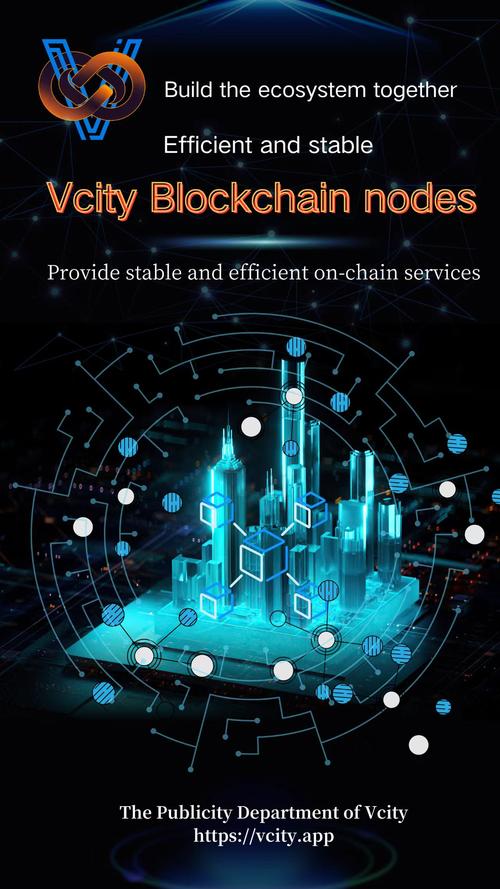Blockchain Transactions: The New Era of Digital Transaction Processing
 summary:
Blockchain transactions are revolutionizing the way digital transactions are processed, he...
summary:
Blockchain transactions are revolutionizing the way digital transactions are processed, he... Blockchain transactions are revolutionizing the way digital transactions are processed, heralding a new era in digital transaction processing. This innovative technology ensures secure, transparent, and immutable records of transactions, enhancing efficiency and trust in digital systems.
Title: Understanding Blockchain Transactions: The Evolution of Digital Transaction Processing
In the realm of digital technology, blockchain transactions have emerged as a revolutionary concept that is revolutionizing the way we process financial transactions and data exchange. As the cornerstone of blockchain technology, blockchain transactions are secure, transparent, and immutable, marking a significant shift from traditional transaction processing methods.
What are Blockchain Transactions?
Blockchain transactions are digital transfers of value or data that occur within a blockchain network. These transactions are recorded in blocks, which are then chained together to form a decentralized ledger. Each transaction is validated by the network's participants and secured through cryptographic algorithms, ensuring their authenticity and integrity.
How Do Blockchain Transactions Work?
Blockchain transactions are processed through a decentralized network of computers, known as nodes. Each node has a copy of the blockchain ledger and verifies transactions by solving complex cryptographic puzzles. Once a transaction is verified, it is added to a block and then chained to the previous block, creating a secure and immutable record.
The key concept behind blockchain transactions is the use of cryptography to secure the network and ensure the authenticity of transactions. Each transaction is associated with a digital signature that verifies the sender's identity and ensures that only the rightful owner can access and spend the funds. This level of security makes blockchain transactions resistant to fraud and double-spending.
Features of Blockchain Transactions
1、Security: Blockchain transactions are secured through cryptography, ensuring the authenticity and integrity of each transaction. With decentralized verification and validation, the network is resistant to hacking and other security threats.
2、Transparency: All blockchain transactions are visible to all network participants, creating a transparent and trustworthy environment. This transparency fosters confidence in the system and reduces the risk of fraud.
3、Immutability: Once a transaction is added to the blockchain, it cannot be altered or deleted, ensuring the integrity of the ledger and the validity of transactions.
4、Decentralization: Blockchain transactions are decentralized, meaning they do not rely on a central authority or intermediary to process or verify transactions. This decentralized nature reduces the risk of single points of failure and increases resilience to attacks.
Applications of Blockchain Transactions
1、Finance: Blockchain transactions are revolutionizing the financial industry by enabling secure and transparent money transfers, smart contracts, and digital asset exchanges.
2、Supply Chain Management: Blockchain transactions provide a secure and transparent way to track the movement of goods and services, enhancing supply chain efficiency and reducing fraud.
3、Healthcare: Blockchain transactions can be used to securely store patient data, track medical records, and ensure the authenticity of medical products.
4、Digital Identity: Blockchain transactions can be used to create secure digital identities that are resistant to identity theft and fraud.
5、Internet of Things (IoT): By using blockchain transactions, IoT devices can securely exchange data and perform value transfers without relying on a central authority.
Challenges Faced by Blockchain Transactions
Despite the numerous advantages of blockchain transactions, there are several challenges that need to be addressed for widespread adoption. Some of these challenges include:
1、Scalability: As the blockchain ledger grows, the network's scalability becomes a challenge, leading to slow transaction speeds and increased costs.
2、Regulatory Framework: The lack of a clear regulatory framework for blockchain technology poses a challenge for its widespread adoption. Different countries have different regulations, which can hinder cross-border transactions and create legal uncertainties.
3、Interoperability: Different blockchain platforms use different protocols and technologies, leading to interoperability challenges between different systems.
4、User Adoption: Despite the numerous advantages of blockchain technology, user adoption remains a challenge due to the complexity of blockchain concepts and lack of user-friendly interfaces.
Despite these challenges, the potential benefits of blockchain transactions are driving innovation and research in this field. As blockchain technology matures and overcomes these challenges, we can expect to see widespread adoption of blockchain transactions in various industries and applications.
Conclusion
Blockchain transactions are revolutionizing the way we process financial transactions and data exchange, marking a significant shift from traditional methods. With their secure, transparent, and immutable nature, blockchain transactions offer numerous advantages in various industries, including finance, supply chain management, healthcare, digital identity, and IoT. As we continue to explore and overcome the challenges faced by blockchain transactions, we can expect to see even more innovation and adoption in the future.

